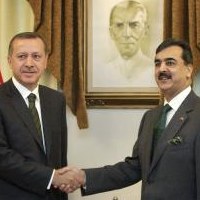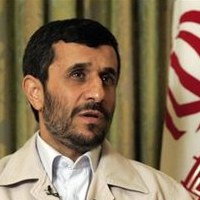![]()
Sun, Nov 28, 2010 | The Meir Amit Intelligence and Terrorism Information Center
Iranian-Indian Relations Tense After Supreme Leader Expresses Support for Muslims’ Struggle In Kashmir
Last weekend, India summoned Reza Ala’i, Iran’s chargé d’affaires in New Delhi, to lodge a protest over remarks made by Supreme Leader Ayatollah Ali Khamenei in support of the struggle of the Muslim residents of Kashmir, the site of a long-standing territorial dispute between India and Pakistan.
In a letter sent last week by Khamenei to Iranian pilgrims leaving on a pilgrimage to Islam’s holy sites in Saudi Arabia, Khamenei wrote that the leadership of the Muslim nation is now committed to assist the Palestinian people and those besieged in the Gaza Strip, and to render assistance to the struggle of the nations in Afghanistan, Pakistan, Iraq, and Kashmir (various news agencies, November 15). The Indian press has claimed this week that it is the third time in recent months that top Iranian officials have addressed the situation in the Kashmir region and associated the conflict there with the struggle of Muslims elsewhere in the world.
At a meeting with the Iranian chargé d’affaires, Indian Foreign Ministry representatives expressed a strong demarche and “deep disappointment” over the remarks made by the Supreme Leader, claiming they impinged on India’s territorial integrity and sovereignty. At the same time, India for the first time abstained from supporting Iran in a vote at the UN assembly last Friday to condemn Iran for violations of human rights. The resolution was passed with 80 votes in favor, 44 against, and 57 abstentions.
Mir-Vaez Farouq, the religious leader of the Muslims in Kashmir, thanked Khamenei for his support this week and called him “a great leader”. He noted that he intended to go to New Delhi himself to meet with the Iranian representative and personally convey his appreciation for Khamenei and the Iranian people (Asr-e Iran, November 21).
The website Iranian Diplomacy reported this week that the change in India’s stance towards Iran also reflected the influence of President Obama’s visit to New Delhi about two weeks ago. According to the website, after several years of good relations between the two countries, New Delhi has recently been drifting away from Tehran. In recent years, India has been considered one of Iran’s most important trade partners—the two countries signed numerous agreements, mainly in the energy sphere. India is also considered a key importer of crude oil from Iran and has supported it on various international forums. The daily noted that the influence of President Obama’s visit to India was reflected, among other things, in an instruction recently given by the Indian Central Bank to its branches abroad to stop doing business with Iranians, and in the decision made by an Indian gasoline company to acquiesce to American pressure by not extending a contract it had signed with Tehran to sell gasoline to Iran (Diplomasi-ye Irani, November 20).
On the backdrop of the India-Iran tensions, the conservative daily Jomhuri-ye Eslami warned the leaders of India this week that they must not count on American friendship, claiming that they should learn the lesson from the fate that had befallen America’s former allies. An editorial published by the daily states that, in recent months, the U.S. has changed its policy towards Pakistan, formerly considered its regional ally, and now prefers to have closer relations with India while U.S. forces bomb Taliban targets in Pakistani territory. According to the daily, India’s leaders must realize that the Americans are not interested in the wellbeing of the region’s nations but rather in the promotion of their own interests and in deepening their political and military presence while taking advantage of internal struggles in the region, including that in Kashmir. The friendship displayed by America towards India is “strictly tactical”, aimed to take advantage of India for its own needs (Jomhuri-ye Eslami, November 21).
The website Tabnak also addressed India’s strong reaction to Khamenei’s remarks, claiming that India may well be using the Supreme Leader’s statement as an excuse to exert pressure on Iran. Expressing solidarity with the Muslims in Kashmir isn’t meddling in India’s internal affairs, Tabnak claimed, just the same as Iran’s helping flood victims in Pakistan wasn’t meddling in the affairs of that country. The website called on the Iranian authorities to follow the threats against Iran that had recently appeared in Indian press and may, according to Tabnak, mark the beginning of a new tendency in India’s policy towards Iran (Tabnak, November 22).



 RSS
RSS











Iranian-Indian Relations Tense After Supreme Leader Expresses Support For Muslims' Struggle In #Kashmir | #Iran #India http://j.mp/euGFgl